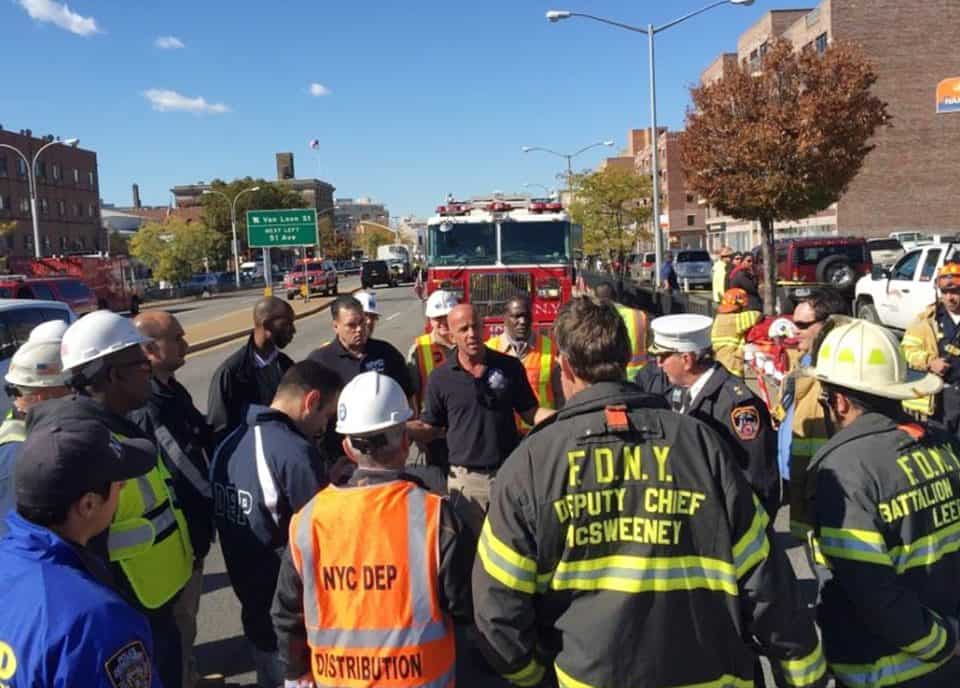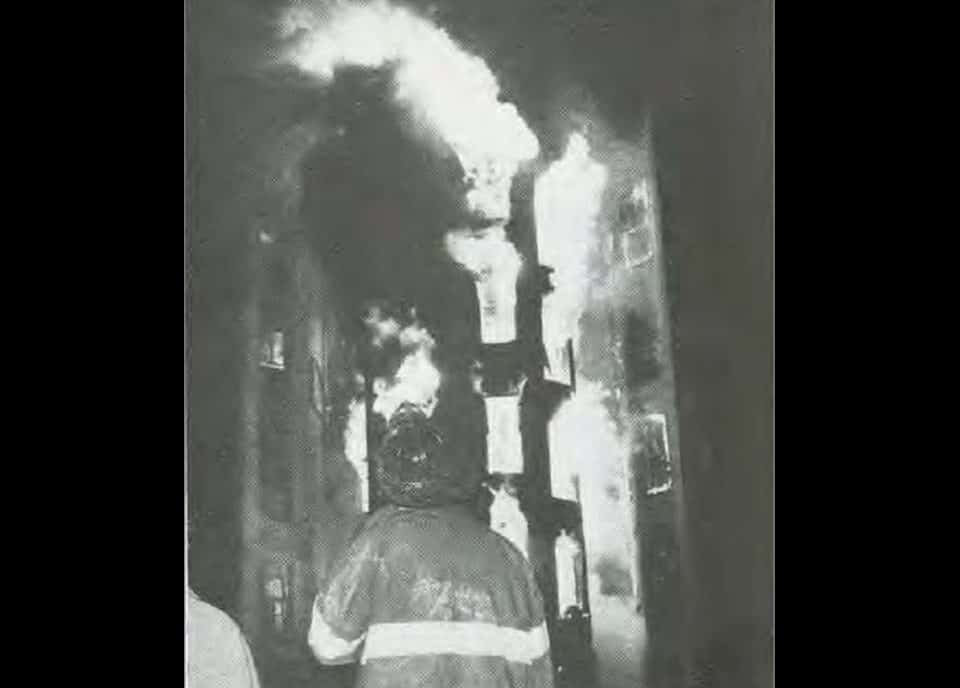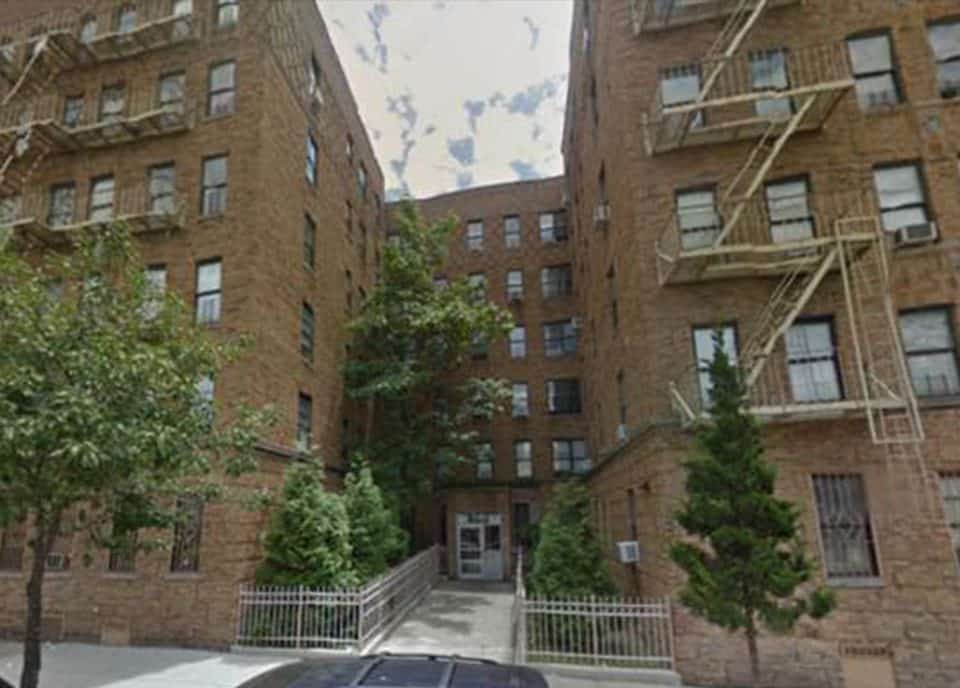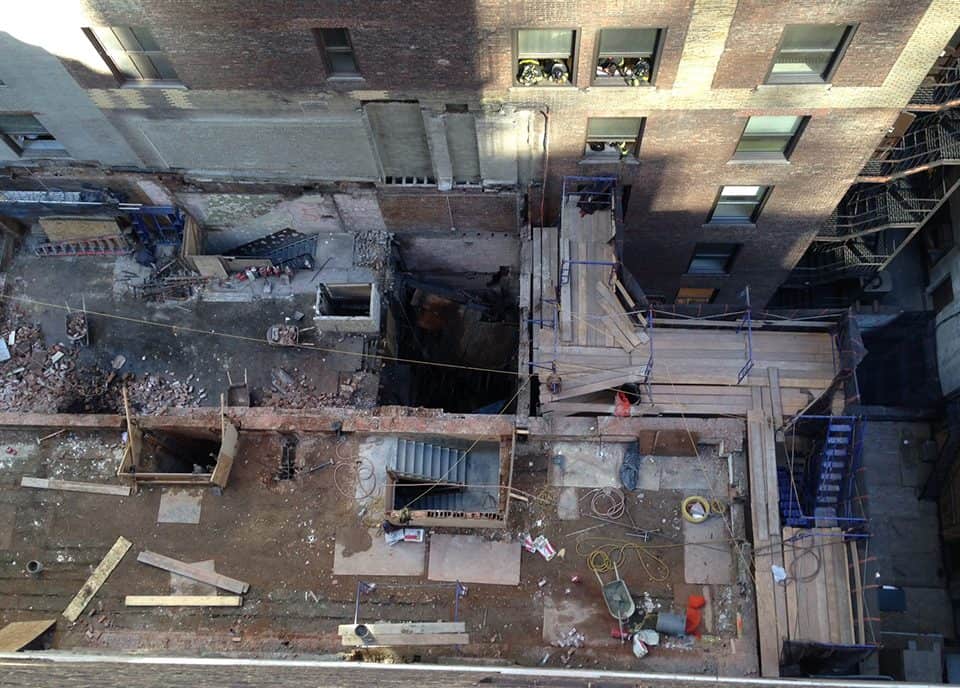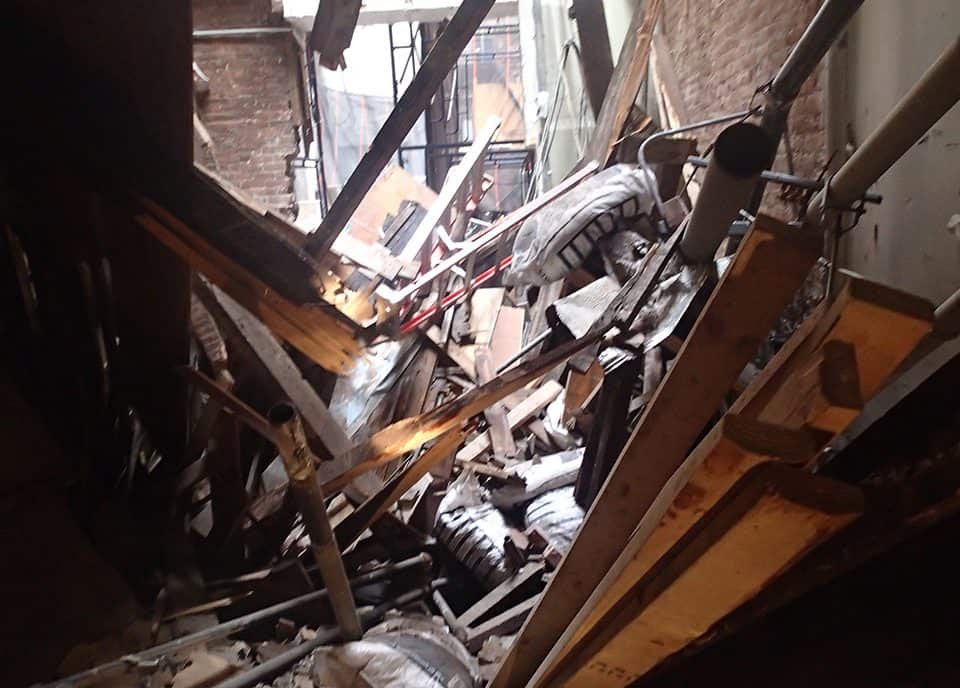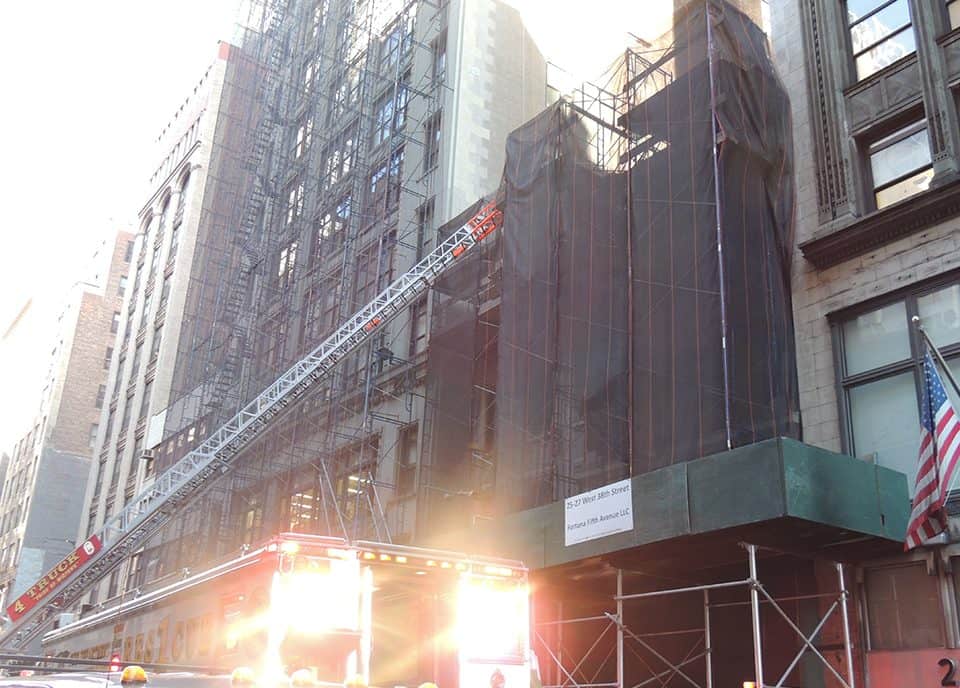On Friday morning, October 23, 2015, FDNY units responded to a 20-inch water main break in the Elmhurst section of Queens. The rupture was the result of a worker using an auger to place retaining wall pilings. This main, which was cross-connected to a larger, 70-inch main, mistakenly was believed to be far enough away […]
The year 1977 was noteworthy on several fronts in New York City history: a heated mayoral race, a major electrical blackout, a World Series in the Bronx and a notorious serial killing spree by what came to be known as the “.44-caliber killer” (later dubbed the “Son of Sam” killer following a series of letters […]
In the late-morning hours of Monday, November 30, 2015, the weather was mild with very little wind. At 1148 hours, a telephone alarm was received for Box 2989, reporting a fire from the roof at 1750 Montgomery Avenue. This resulted in a stubborn cockloft fire, reminiscent of the kind of fires that were very common […]
Rescue 1 had just finished operating at a multi-car accident with multiple injuries and was returning to quarters when a call came over the radio, redirecting members to a reported ceiling collapse. This collapse initially was designated as a minor incident, but soon was upgraded with reports of two victims. One of the victims was […]
Manhattan Box 0751, transmitted on October 30, 2015, at 1028 hours, for a “ceiling fell down,” turned into a complicated and dangerous collapse rescue operation for FDNY companies. The buildings located at 25 and 27 West 38th Street were both in the process of demolition, making room for a new luxury high-rise hotel. While workers […]
On Friday, October 30, 2015, at 1028 hours, units in Manhattan were dispatched to Box 0751, reporting a ceiling collapse at 25 West 38th Street. On arrival, units encountered a collapse that trapped two construction workers at a construction site. One worker already was deceased and the other survived, following a successful removal that required […]
The dangers of lightweight construction are very real and should be drilled on continuously, researched and discussed by all. The FDNY now has “Firefighting Procedures, Private Dwellings, Chapter 6–Lightweight Construction,” but many of the topics therein were discussed in depth in a series of WNYF articles: “Lightweight Residential One- to Four-Family Homes: Construction Features and Tactical […]
On Friday morning, October 23, 2015, FDNY units responded to a 20-inch water main break in the Elmhurst section of Queens. The rupture was the result of a worker using an auger to place retaining wall pilings. This main, which was cross-connected to a larger, 70-inch main, mistakenly was believed to be far enough away […]
The year 1977 was noteworthy on several fronts in New York City history: a heated mayoral race, a major electrical blackout, a World Series in the Bronx and a notorious serial killing spree by what came to be known as the “.44-caliber killer” (later dubbed the “Son of Sam” killer following a series of letters […]
In the late-morning hours of Monday, November 30, 2015, the weather was mild with very little wind. At 1148 hours, a telephone alarm was received for Box 2989, reporting a fire from the roof at 1750 Montgomery Avenue. This resulted in a stubborn cockloft fire, reminiscent of the kind of fires that were very common […]
Rescue 1 had just finished operating at a multi-car accident with multiple injuries and was returning to quarters when a call came over the radio, redirecting members to a reported ceiling collapse. This collapse initially was designated as a minor incident, but soon was upgraded with reports of two victims. One of the victims was […]
Manhattan Box 0751, transmitted on October 30, 2015, at 1028 hours, for a “ceiling fell down,” turned into a complicated and dangerous collapse rescue operation for FDNY companies. The buildings located at 25 and 27 West 38th Street were both in the process of demolition, making room for a new luxury high-rise hotel. While workers […]
On Friday, October 30, 2015, at 1028 hours, units in Manhattan were dispatched to Box 0751, reporting a ceiling collapse at 25 West 38th Street. On arrival, units encountered a collapse that trapped two construction workers at a construction site. One worker already was deceased and the other survived, following a successful removal that required […]
The dangers of lightweight construction are very real and should be drilled on continuously, researched and discussed by all. The FDNY now has “Firefighting Procedures, Private Dwellings, Chapter 6–Lightweight Construction,” but many of the topics therein were discussed in depth in a series of WNYF articles: “Lightweight Residential One- to Four-Family Homes: Construction Features and Tactical […]


